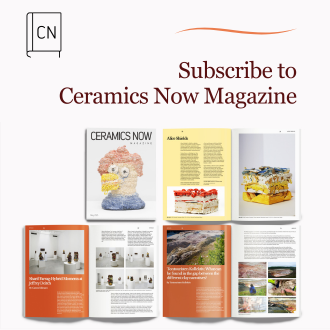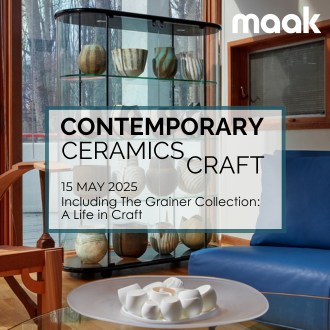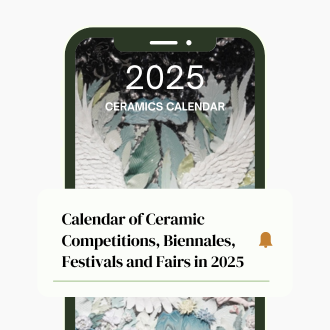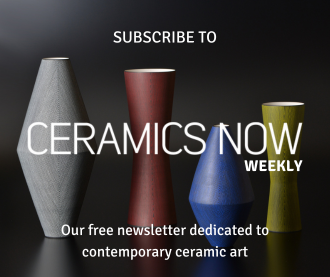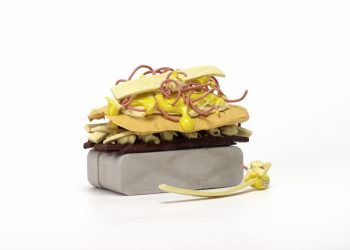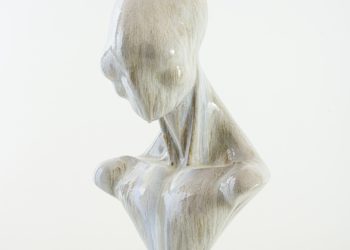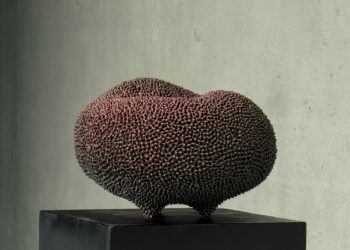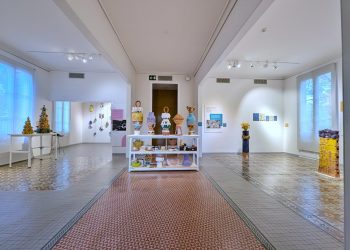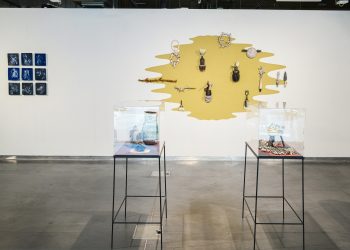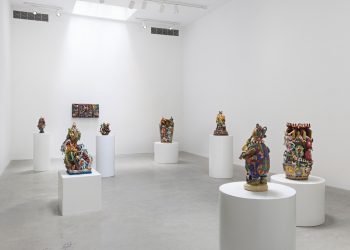Ozioma Onuzulike is an artist born in 1972 in Achi, Enugu State, Nigeria. He graduated First Class from the Department of Fine and Applied Arts, University of Nigeria, Nsukka, where he is currently a professor of ceramic art and African art history and Director of the University’s Institute of African Studies. His first solo exhibition in New York was held September-October 2023 at the Marc Straus Gallery in New York City. His works were included in the exhibition [Re:]Entanglements: Colonial Collections in Decolonial Times, held at the Museum of Archeology and Anthropology, University of Cambridge, UK, arising from the [Re:]Entanglements Research Project led by Professor Paul Basu.
Onuzulike is a fellow of the Civitella Ranieri Centre, Umbertide, Perugia, Italy, where he completed a residency under the UNESCO-ASCHBERG Bursary for Artists. Additionally, he is a 2011 recipient of the African Humanities Postdoctoral Fellowship Award of the American Council of Learned Societies (ACLS), and 2010 Leventis Postdoctoral Research Fellow, University of London Centre of African Studies, SOAS; and an alumnus of the Skowhegan School of Painting and Sculpture, Maine. His works are in the collection of museums such as the Yemisi Shyllon Museum of Art, Lagos; Museum of Archeology and Anthropology, Cambridge University, UK; Princeton University Museum, New Jersey; The Design Museum, Munich; Hudson Valley Museum of Contemporary Art, New York; the Crocker Museum, California; Fondation Thalie, Brussels; Museo Ettore Fico, Turin and North Dakota Museum of Art, Grand Forks, among others.
Visit Ozioma Onuzulike’s website and Instagram page.
Featured work
Dotted Lines, 2023 – Essay by Ngozi-Omeje Ezema
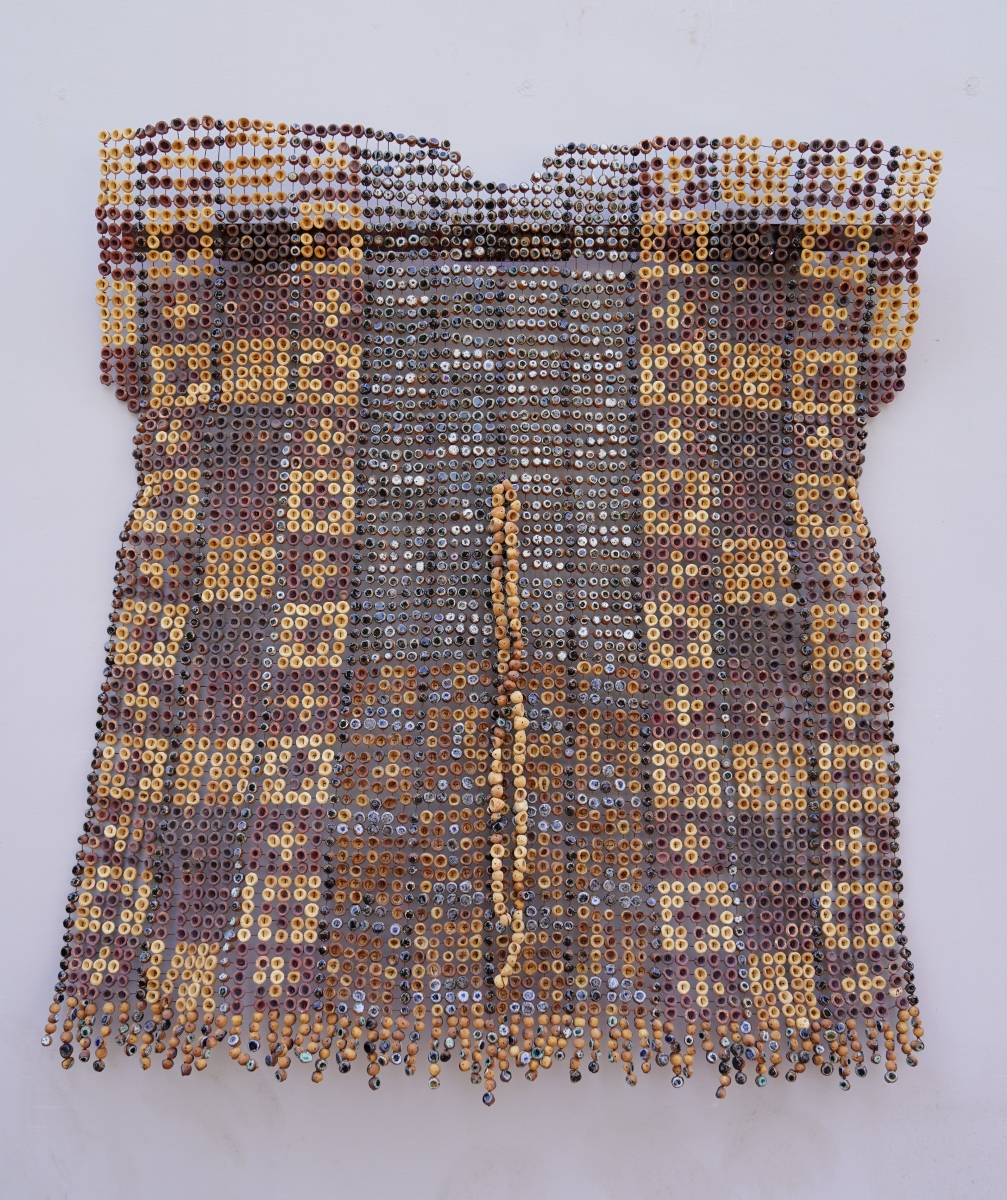
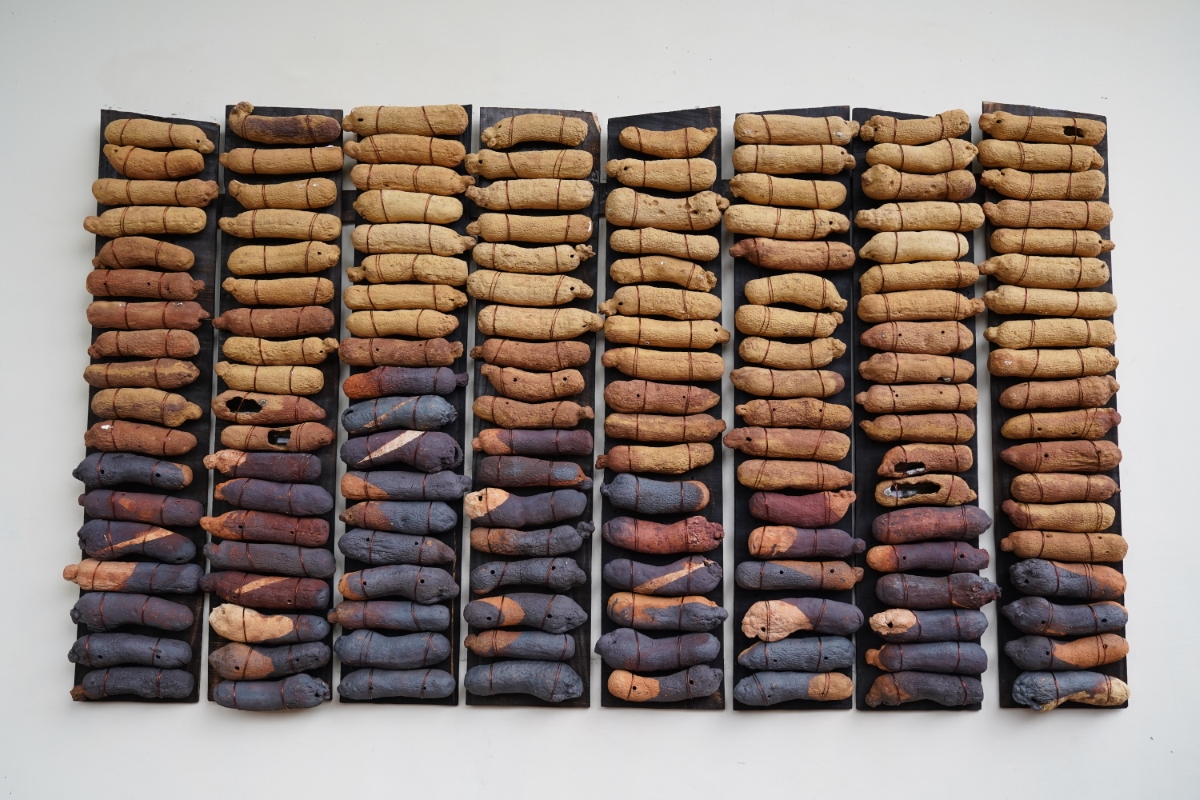
The palm kernel shell beads project explores the aesthetic qualities and historical significance of an iconic African natural resource – the palm kernel. After the slave trade era, trade in Africa’s palm oil, palm kernel, and other natural resources became intense. My part of Africa was particularly noted for palm oil and palm kernel production, servicing the lopsided trade/power relations with the Western world. I see the palm kernel, including its shell (the remnants of the palm oil/kernel production), as historically charged. In their natural form, they look like beads – again, a trade token (popularly called Slave Beads) that carries much historical baggage. I make millions of palm kernel shells in terracotta, turning many into glass beads in a very laborious studio process. In contemporary African societies, beads have been transformed into items of prestige and social status, based especially on the gesture of accumulation. With them, I weave mixed media ceramic structures that resemble Africa’s prestige cloths (such as the Nigerian Akwete and Aso Oke, and the Ghanian Kente) or imported ones (such as lace fabric) that are also highly regarded in Africa as markers of social status. This conversation around the issue of social change has remained in flux.


